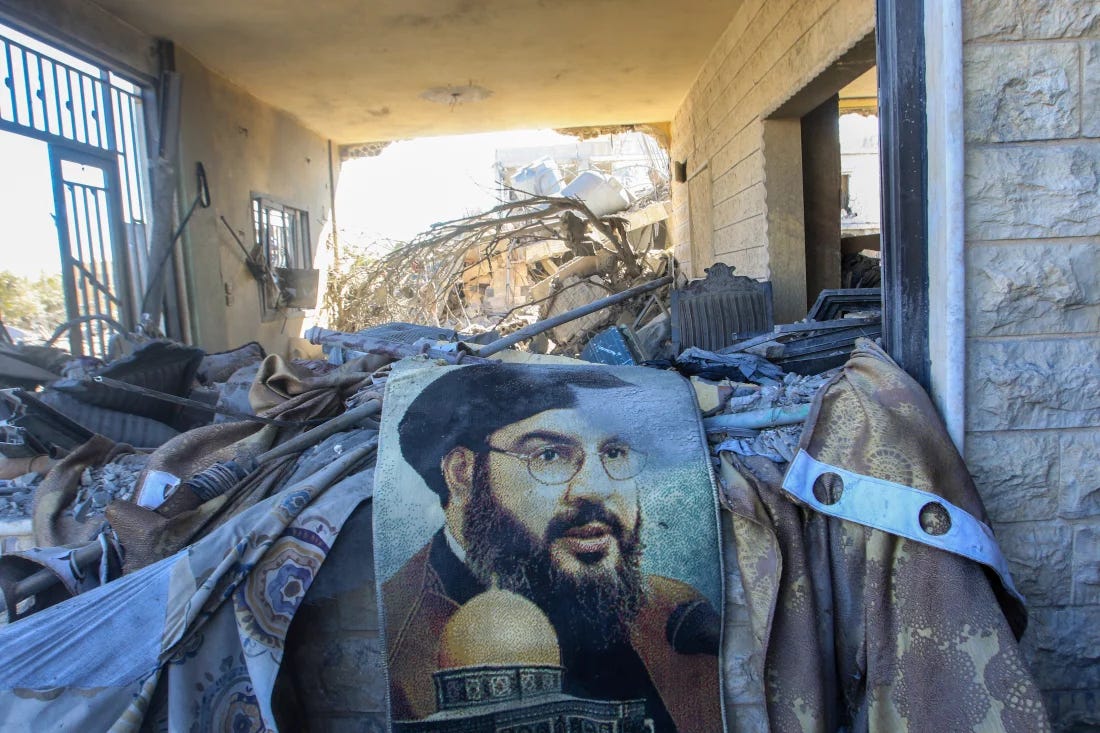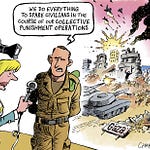Welcome back to Political Misfits, where we bring you news, politics and culture - without the red and blue treatment. I am John Kiriakou here with Michelle Witte.
Of course, I want to get to the news from the Middle East, but we haven’t heard your take on Russia’s revised military doctrine, and I’m curious how significant you think it is. Last week, Russian President Vladimir Putin proposed a revision that began to be formalised over the weekend. Following these changes, Russia would consider using nuclear weapons if it were attacked by a non-nuclear state that Russia considered to be backed or assisted by a nuclear state. Russia would consider that a “joint attack.” How serious a message is this?
Ukraine sent a barrage of drones toward Russia over the weekend, and Russia struck nearly a dozen Ukrainian regions with drones and missiles today. And AP reports that Ukraine is warning that Russia might be preparing a new assault in southern Ukraine. What can you tell us about that?
Strike on Hezbollah Deepens Disconnect Between Biden and Netanyahu - The New York Times
This was the headline from the New York two days ago: “Strike on Hezbollah Deepens Disconnect Between Biden and Netanyahu.” Boy, it’s a good thing that rift is just getting deeper and not wider, because golly, if it was spreading out it would be hard to keep throwing weapons across it. Just lucky, I guess.
So here’s what the Times means. It tells us “Israeli officials gave their American counterparts no advance warning of the strike that killed Hassan Nasrallah, the longtime leader of Hezbollah, according to U.S. officials. But Mr. Biden said the killing was “a measure of justice” for victims of Hezbollah terrorism.” Ah, well, nevertheless. I like how the Times also describes American officials as “peeved” that Israeli PM Benjamin Netanyahu “brushed off a US-French” ceasefire proposal in Lebanon.
The idea that there’s an actual disconnect between Biden and Netanyahu is just silly. Who gives a damn if Biden personally frets about Netanyahu’s conduct. You’re president - the only thing that matters is action. But let me ask you about another contention here. The Times also writes that “Now American officials worry that they face a wider war that could engulf the region after nearly a year of effort by Mr. Biden to head off such an escalation.” We have been scoffing at the idea that sending weapons to a conflict will prevent escalation. Should we take a moment to reconsider this, though? Is Israel’s unimpeded supply of US weapons part of what is preventing more of a response from Hezbollah in Lebanon and from Iran? Israel, clearly, is able to escalate whenever it wants. Is the US pretending to fret while it hopes that a display of dominance from Israel will actually kick this can down the road? And is that actually the best we can hope for?
We were also told over the weekend that Israeli special forces have been conducting ground raids in Lebanon in preparation for a larger ground invasion that could come as early as this week. What might that look like? How’s that going to change this conflict?
Can you tell us anything about Israel’s intentions? If this invasion does come, how quickly would you expect Israeli troops to withdraw from southern Lebanon?
https://x.com/ryangrim/status/1840415293987787169
https://thecradle.co/articles-id/27078
I want to ask about Israel’s strikes on Yemen, on the port of Hodeidah in particular. Journalist Ryan Grim and others have pointed out that Hodeidah is the key port used for humanitarian aid to get into the country, and in his words, keeping it open has been a top priority of those who oppose famine. The Jerusalem Post, citing Al Mayadeen and the IDF, said Israel had struck the port, oil reserves in Ras Issa and also the port of Hodeidah, and “power plants and a seaport used to import oil, which the Houthis used to transfer Iranian weapons to the region, in addition to military supplies and oil.” Can’t imagine what non-military uses Yemen has for oil. So … what is this? Is this port a legitimate military target? Are there other more specific military targets the Israelis could have hit, or is Ansrallah’s operation so low tech that there’s nowhere to go? And then should we accept what looks like just more punishment for Yemeni civilians in lieu of taking out military capabilities?














Share this post